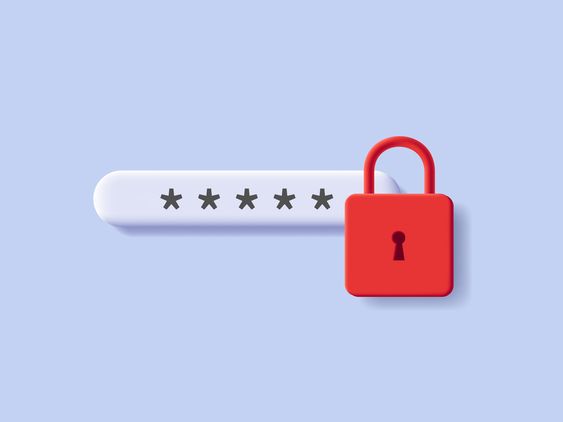How to Create a Strong Password
Crafting a strong password is your first line of defense against online threats. The key lies in complexity. Aim for at least 12 characters, mixing uppercase and lowercase letters, numbers, and symbols. Avoid dictionary words, birthdays, or personal information. Instead, consider a memorable phrase or sentence, like a favorite movie quote with added complexity. For instance, “BeamMeUp15*!” is much more secure than “StarTrek.” This extra layer of difficulty makes it nearly impossible for hackers to guess your password.
Understanding Password Strength
What makes a password strong?
A strong password is one that is difficult for others to guess or crack using automated tools. It typically consists of a combination of uppercase and lowercase letters, numbers, and special characters. The longer and more complex a password is, the harder it is to crack.
Common mistakes to avoid
Many people make the mistake of using passwords that are easy to guess or remember, such as “password123” or their birthdate. Avoid using easily guessable information or common words as your password, as hackers can easily crack these. Also, read about Why Is My Phone in SOS Mode
Choosing a Strong Password
Length and complexity
When creating a password, aim for a minimum length of at least 12 characters. The more characters your password contains, the harder it is to crack. Additionally, include a mix of uppercase and lowercase letters, numbers, and special characters to increase complexity.
Avoiding personal information
Avoid using personal information such as your name, birthdate, or the name of a family member or pet in your password. Hackers can easily find this information online and use it to guess your password.
Using Passphrases
What are passphrases?
A passphrase is a longer, more complex version of a password that consists of multiple words strung together. For example, “correct horse battery staple” is a passphrase that is easy to remember but incredibly difficult for hackers to crack.
Benefits of using passphrases
Passphrases are often easier to remember than traditional passwords and can provide a higher level of security. They also allow for greater variation and randomness, making them harder to guess. For more interesting information visit our website techaicare.com
Randomness and Variation
Utilizing random characters
Avoid using predictable patterns or sequences in your password, such as “123456” or “qwerty.” Instead, use a combination of random characters to increase security.
Avoiding common patterns
Hackers often use automated tools that can easily guess common password patterns, such as substituting “0” for “o” or “3” for “e.” Avoid these predictable patterns in your passwords.

Password Managers
What is a password manager?
A password manager is a tool that securely stores all of your passwords in an encrypted vault. It allows you to generate strong, unique passwords for each of your accounts and automatically fills them in when you log in.
Benefits of using a password manager
Password managers eliminate the need to remember multiple complex passwords, making it easier to maintain strong security practices. They also protect against phishing attacks by only autofilling passwords on legitimate websites.
Multi-factor Authentication
Adding an extra layer of security
Multi-factor authentication (MFA) adds an extra layer of security to your accounts by requiring two or more forms of verification, such as a password and a one-time code sent to your phone.
Different types of MFA
There are various types of MFA, including SMS-based codes, authenticator apps, and biometric authentication. Choose the option that works best for you to enhance your account security.
Regularly Updating Passwords
Importance of changing passwords
Regularly changing your passwords reduces the risk of them being compromised. Aim to change your passwords at least every six months, or immediately if you suspect any suspicious activity on your account.
Setting reminders
Set reminders on your calendar or use a password manager that prompts you to update your passwords regularly. This ensures that you stay proactive about maintaining strong security practices.
Security Tips for Creating and Managing Passwords
Using different passwords for different accounts
Avoid using the same password for multiple accounts, as this increases the risk of a security breach. Instead, use unique passwords for each account to minimize the impact of a potential breach.
Checking for password breaches
Regularly check if your passwords have been involved in any known data breaches using websites like Have I Been Pwned. If your password has been compromised, change it immediately.

Educating Others on Password Security
Importance of spreading awareness
Take the initiative to educate your friends, family, and colleagues about the importance of password security. Many people are unaware of the risks posed by weak passwords and can benefit from guidance on creating strong passwords.
Tips for educating friends and family
Share this guide with your loved ones and encourage them to follow best practices for password security. Offer to help them set up password managers or assist them in creating strong, memorable passphrases.
Conclusion
Creating a strong password is one of the simplest yet most effective ways to protect your online accounts from cyber threats. By following the tips outlined in this guide, you can significantly enhance the security of your passwords and reduce the risk of unauthorized access to your accounts.
Remember to prioritize password security by choosing strong, unique passwords or passphrases, utilizing password managers, enabling multi-factor authentication, and regularly updating your passwords. By taking these proactive measures, you can safeguard your personal and sensitive information from falling into the wrong hands.
FAQs
1. How often should I update my passwords?
It’s recommended to update your passwords at least every six months, or immediately if you suspect any suspicious activity on your account.
2. Are passphrases better than traditional passwords?
Passphrases are often more secure than traditional passwords because they are longer and easier to remember while still being difficult for hackers to crack.
3. What is multi-factor authentication, and why is it important?
Multi-factor authentication adds an extra layer of security to your accounts by requiring two or more forms of verification, reducing the risk of unauthorized access.
4. Can I use the same password for multiple accounts?
It’s not recommended to use the same password for multiple accounts, as this increases the risk of a security breach. Use unique passwords for each account instead.
5. How can I help others improve their password security?
Share educational resources like this guide with your friends and family and offer to assist them in setting up password managers or creating strong passwords.
